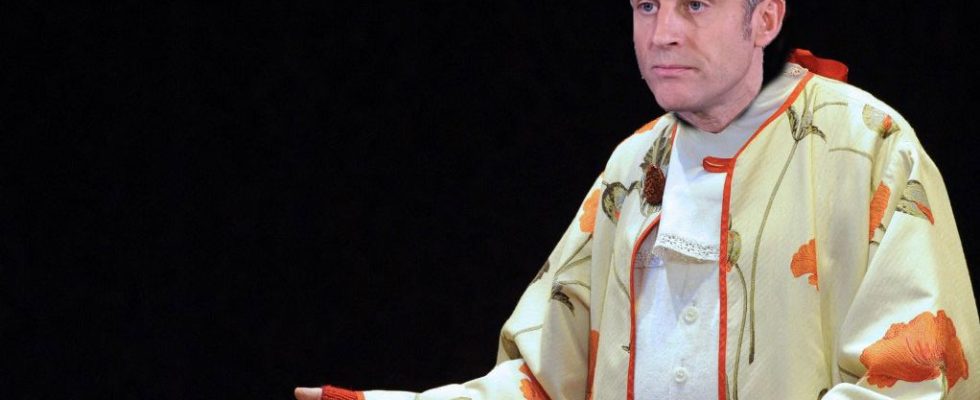Among the themes swept by Emmanuel Macron on Tuesday evening during his press conference lasting more than two hours, theater figured prominently. The president hoped that the subject would become “an obligatory course in college from the next school year”. Praising the virtues of discipline, the Head of State considered that theater “gives confidence. This teaches orality, contact with great texts.”
If the track is launched, the modalities remain to be defined. And that is the heart of the matter. Is making theater compulsory a good idea? In what conditions ? With which teachers? Elements of response with Antoine de La Morinerie, president of the association of drama teachers of schools controlled and approved by the State (AnPad), Inna Clemente, theater teacher, but also Mara Bijeljac, director.
Making theater compulsory in middle school, a good idea?
On paper, it is difficult to reject the initiative outright. Especially since practice can allow students to develop qualities other than those required in other subjects. “It can open up collective or individual spaces for daydreams, thoughts, creative and sensitive expressions,” lists Mara Bijeljac, director, director of the company Disorders and theater teacher in a high school in Chennevières-sur-Marne. According to the professional, having “a space for creativity and possible listening” can give students the keys to flourishing, “regardless of the sectors chosen”. But, to achieve its objectives, the artistic sectors will need “real consideration and substantial budgets”, notes the director, who denounces a devaluation of the artistic sectors from year to year.
What limits exist in front of the set objective?
“Can we do theater in a class of 25 students? It’s a real question,” asks Antoine de La Morinerie. To teach, the professor at the regional conservatory of Cergy-Pontoise does not require “an Italian theater, but at least four square meters per student. “Theater, as with physics or chemistry experiments, should be seen as practical work that requires half-groups,” recommends the specialist.
In addition to the traffic jam for middle school students in an already congested schedule, the compulsory nature of the subject also raises questions for the professionals involved. So as not to be overwhelmed like Bernard Campan in the sketch about the revolution, teachers will have to be patient. “I have 12 middle school students in my workshop, and it is sometimes difficult to hold them, even though they are willing and highly motivated,” confides Inna Clemente, theater teacher and director at the Echo theater, in the 20th arrondissement of Paris. At 30, most of the course is going to be discipline. It is nonsense to want to impose. At this age, not everyone wants to show off. »
Antoine de La Morinerie also pleads for flexibility. “If children don’t want to, we will have to be attentive and not punish them. » Another adverse effect raised: evaluation. “You don’t recite to get a good grade and to raise your average. For me, the initiative is a bad idea,” says Inna Clemente.
Which teachers to teach these courses?
Antoine de La Morinerie makes the observation. “Theater teachers in national education don’t exist,” he says. But the professional is quick to detail the different systems, such as classes with flexible schedules, the science and techniques baccalaureate for theater, music and dance, and theater specialties, at high school. “National education teachers have the possibility of taking a theater certification, which allows them to supervise certain practices in partnership with an artist,” he recalls.
In college, volunteer teachers also sometimes ask a theater professional for an intervention in class. “Some teachers take the initiative when they feel that their class is motivated,” underlines Inna Clemente, who occasionally intervenes in colleges. But theater must also be taught by professionals. »
And, to bring ambitious projects to life and sustain the teacher-professional tandem, the crux of the matter remains money, according to Mara Bijeljac. “We are going to need larger budgets. That would be a real consideration,” considers the director. “ “Every year, we announce that theater will be at school next year, but it has already been there for a long time. It’s up to the public authorities to provide it with lasting resources,” insists Antoine de La Morinerie.

